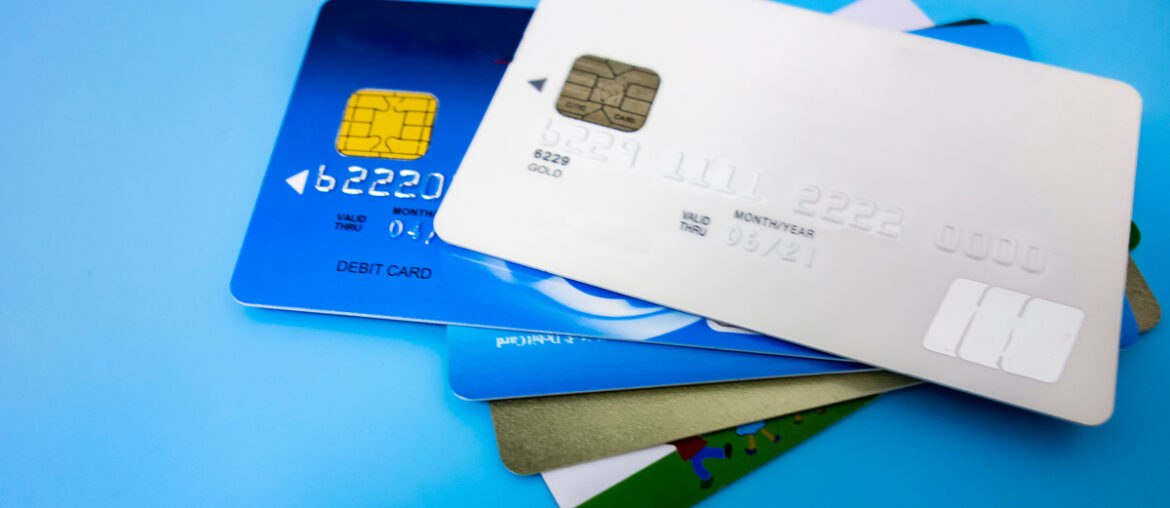Running a field service business comes with a world of everyday expenses, from buying materials to gassing up vehicles. Handing out petty cash or reimbursing employees for expenses as they arise might be enough to scrape by for a little while, but tracking all of those purchases, verifying receipts and avoiding roadblocks in cash flow quickly becomes a full-time job that eats up labor hours and costs more than it’s worth — and that’s nothing compared to the headache for whoever has to stay on top of organizing it all.
When it comes to covering your business’s day-to-day expenses, controlling your finances and preparing your business for future financial events, a dedicated business credit card is an option that provides a world of benefits.
Who should apply for a business credit card?
Regardless of the size of your business, acquiring a business credit card is a great way to keep business and personal expenses separate — a huge benefit for both you and your business. Even if you’re operating as a sole proprietor or owner-operator, a dedicated business credit card allows you to separate your finances into distinct categories. This allows you to better track your business expenses for more accurate analysis and planning. Consistently separating professional and personal purchases also simplifies things significantly when it’s time to get things in order for tax filing.
Are there different types of business credit cards?
Just like personal credit cards, business credit cards fall into different categories that provide different functions, requirements and even perks. With several types of cards to choose from, it’s important to take the time to find one that provides a good fit for your business. If you can find a card designed specifically for field service businesses, even better! Be sure to consider the following types of cards when choosing for your business.
Split Settlement Cards
A split settlement card is intended to help businesses build credit by automatically applying a predetermined portion of sales toward the card’s balance. In most cases, this type of card is issued by the same company processing a business’s incoming payments, which simplifies the process of putting income toward expenses automatically.
When managed properly, a split settlement card can help businesses grow or improve their credit while avoiding interest and fees. When the portion of sales dedicated to paying the card balance outweighs the balance of the card, it can even allow businesses to start saving toward anticipated purchases early on.
Cash Back or Travel Credit Cards
Much like personal credit card reward programs you may already be familiar with, some business credit cards provide rewards in the form of cash back or travel miles. In most cases, these rewards tend to fall into categories similar to those for personal cards, with different reward values in different categories, e.g., 2% back on gas and 1% back on miscellaneous purchases. Note that many rewards cards come with a fee, so you’ll want to work out the numbers to see how much you’re really benefiting before applying.
Additionally, it’s worth mentioning that while travel rewards (like airline miles) from a business credit card can often be used for personal trips since they’re not typically taxable, using your business card for personal purchases to earn more rewards can bring you into murky territory when it comes to your personal and business assets. Be sure to read the terms and conditions, speak with a legal advisor and establish rules with any authorized employees up front.
Secured Credit Cards
Secured credit cards typically have a credit limit that’s matched by a security deposit the business puts down, giving them their name. This type of card is usually fairly bare bones in terms of perks, but can provide a way for those with poor credit scores to get their foot in the door and start working toward a more beneficial unsecured card down the road. While a secured card can provide a last resort, it’s typically not an ideal option if you’re able to get approved for something better.
What credit score do you need to get a business credit card?
In regards to credit score, individual business credit card providers are able to establish their own parameters for approval. With that in mind, most providers tend to prefer applicants with a credit score in the mid-to-high 600s or better.
Your credit score isn’t the sole factor in getting a business credit card, though. Considering your goal in acquiring a card may very well be to establish or build credit for your business separate from your personal credit, some providers anticipate applications from businesses with little or no credit. If you fall into this category, your best bet is most likely to seek out a provider with a high applicant approval rate that can help you establish and grow your credit.
WorkWave’s Business Builder Visa is designed to build credit in your business’s name so that you can take control of your finances by dedicating a portion of your sales to automatically paying off your balance or saving against the cost of future purchases. The Business Builder Visa enables you to avoid fees and interest so you can reinvest that money into your business.To learn more about credit card options for your field service business or apply for the Business Builder Visa, checkout WorkWave Financial Services!


